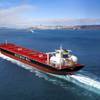BIMCO and the international association for the marine electronics industry, CIRM (Comité International Radio-Maritime), have sent the industry’s first proposal for an industry-wide standard for software maintenance to the IMO for consideration.
Without an industry-standard, BIMCO sees an increasing risk of severe incidents on ships, delays and costs to shipowners and cyber security problems.
"We hope the entire industry will adopt these standards, to make ships safer, to prevent cyber security problems and to save money," says Angus Frew, Secretary General and CEO at BIMCO.
"The industry has been living in a world of hardware. But software has been integrated into most physical equipment on the vessels, and the systems and procedures to manage the software has not kept up with technical developments, and it creates problems," he says.
BIMCO has seen incidents, where ships for example, suffer complete blackouts, and malfunctions in radar and other related systems, as a result of unforeseen difficulties with a software update.
The goal of the Standard on Software Maintenance of Shipboard Equipment is to make sure software updates happen in a secure and systematic way. It should increase the visibility of the software installed on board, ensure the effective planning of maintenance and ensure effective communication between the different parties involved in maintaining the software. Keeping software up to date is also necessary to minimise hacking and malware problems.
The standard requires the user to have a complete list of what software versions are currently running on the ship’s equipment, and ensures that all equipment can display the current software version. It also means that ships can do a complete roll-back to a previous software version, if an update goes wrong, which will enhance safety.
The proposed standard contains an identification of the various roles involved in maintaining software (producer, system integrator, data provider, service and shipowner), a procedural flow for maintenance and an outline of the requirements and responsibilities of the five roles.
The industry standard was made over a four-year period in collaboration with several industry leaders, such as BP Shipping, Maersk Line and Emarat Maritime.
BIMCO and CIRM would like to see the standard become an ISO-standard, to make it more robust. ISO has provisionally accepted the proposal. BIMCO expects a working group to complete the standard in 2021.
It is BIMCO’s and CIRM’s goal that everyone involved in producing and maintaining software for shipboard equipment use this standard.
"It is our hope that BIMCO members will use suppliers who use this standard and that the shipowners will adhere to it as well, for example, by ensuring that there is an updated software log on board," says Frew.











